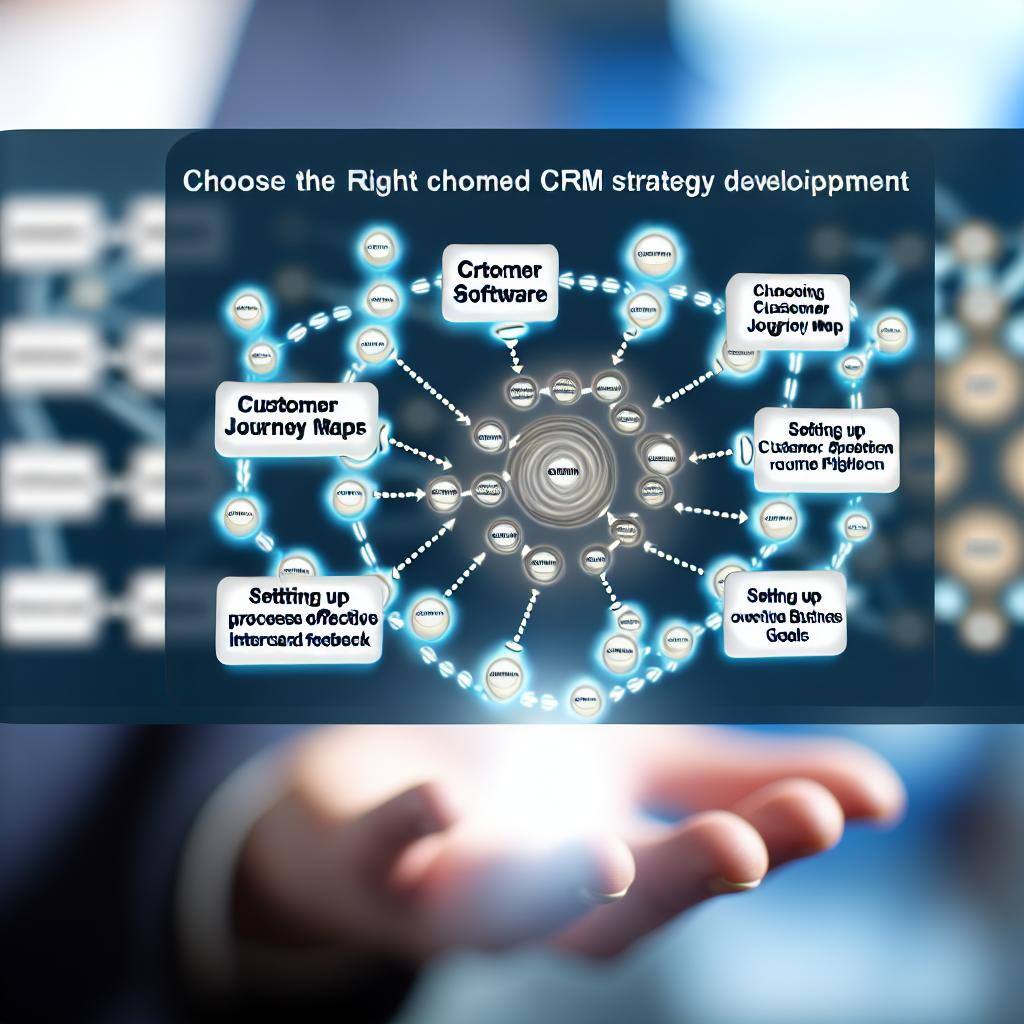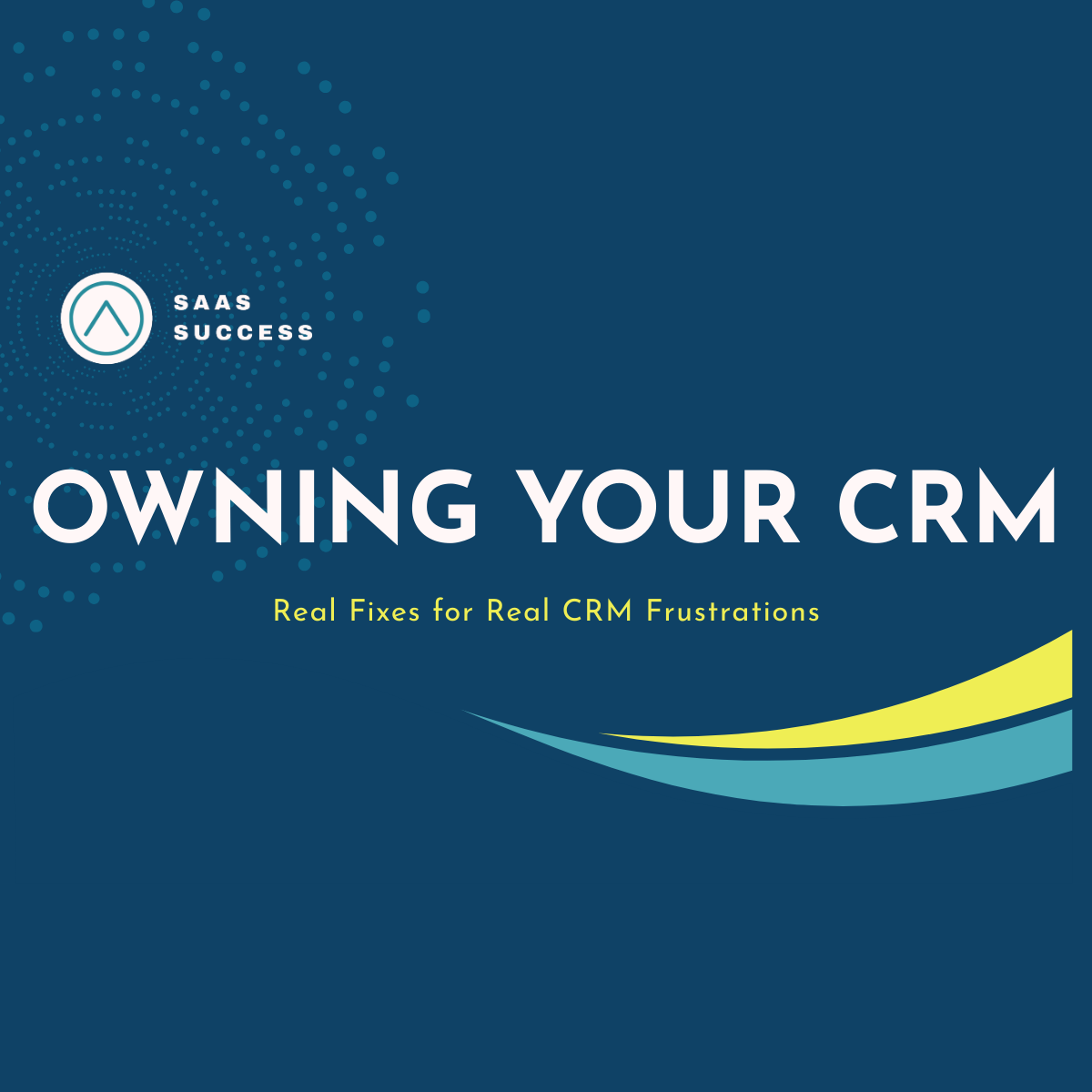
Developing CRM Strategies for Business Success
A well-defined Customer Relationship Management (CRM) strategy can be the key to transforming your business and aligning customer interactions with long-term growth goals. At SaaS Success, we help companies create comprehensive CRM strategies that are not only aligned with business objectives but also designed to drive better customer engagement and operational efficiency.
Here's how you can develop an effective CRM strategy for your business:
1. Choosing the Right CRM Software
The first critical step in building your strategy is selecting the right CRM platform. The chosen CRM should suit your company’s size and align with your operational goals. Solutions like Salesforce offer a scalable platform that can be customised to meet the specific needs of companies ranging from professional services to training and development sectors.
When selecting a CRM:
- Assess your business processes: Ensure the software can streamline workflows, automate routine tasks, and improve efficiency.
- Customisation and scalability: The software should grow with your business, allowing for additional functionalities as required.
- Integration: Ensure the CRM integrates seamlessly with other systems, such as Learning Management Systems (LMS), marketing platforms, or financial tools.
Choosing the right CRM lays the foundation for better customer relationship management, enabling data-driven decisions and efficient process management.
2. Defining Customer Journey Maps
Understanding your customer’s journey is crucial to creating effective strategies. Customer journey mapping involves plotting every touchpoint where your customer interacts with your business, from the initial inquiry to post-sale support. A well-mapped journey ensures your CRM system is fully optimised to meet customer expectations.
Benefits of Customer Journey Mapping:
- Increased Personalisation: By tracking customer interactions, your business can tailor its communication, enhancing the overall customer experience.
- Optimised Touchpoints: Identify critical stages in the buying process where intervention is needed to improve conversion rates.
- Better Feedback Loops: Regularly gather and analyse feedback at each customer touchpoint to ensure continuous improvement.
At SaaS Success, we work closely with our clients to develop journey maps that optimise customer interactions and align with long-term business goals.
3. Setting Up Processes for Effective Interaction and Feedback
A good CRM strategy must include well-defined processes for handling customer interactions. This goes beyond just managing sales or marketing activities; it involves setting up workflows that ensure customers receive timely support, engagement, and follow-up. Your CRM should enable:
- Automated task management: Ensure customer-facing teams follow up consistently, maintaining engagement without manual intervention.
- Feedback management: Create a streamlined process for collecting and addressing feedback, ensuring customer concerns are heard and addressed quickly.
- Data centralisation: Your CRM should act as a single source of truth for all customer-related information, allowing for transparent and informed decision-making.
4. Aligning CRM with Business Goals
Your CRM strategy should align with broader business goals, such as revenue growth, customer satisfaction, or operational efficiency. For instance, automating customer support and using advanced analytics can lead to more efficient processes, reducing operational costs while improving the customer experience.
Key metrics to track include:
- Customer satisfaction scores
- Sales pipeline efficiency
- Retention rates
- Revenue growth.
At SaaS Success, we believe CRM is more than just a tool—it’s a vital part of a business's strategic vision, enabling companies to scale effectively while enhancing customer relationships.
Conclusion Developing a CRM strategy tailored to your business needs is crucial for long-term success. From choosing the right platform and mapping customer journeys to optimising interactions and aligning with your business goals, an effective CRM strategy can streamline operations, boost efficiency, and improve customer satisfaction. At SaaS Success, we specialise in helping businesses integrate and optimise CRM systems, ensuring that every aspect of the strategy works toward driving growth and enhancing customer relationships.
Ready to transform your customer relationship strategy? Contact SaaS Success today to start developing a CRM solution tailored to your business needs.

